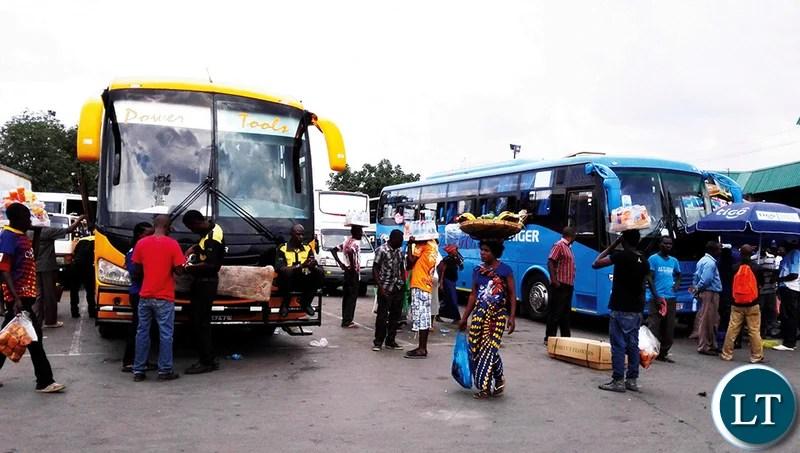Africa-Press – Zambia. The Bus and Taxi Owners Association of Zambia (BTOAZ) is today expected to announce new fares, following the new fuel prices announced this week, In a statement made available to the media, BTOAZ national spokesperson Amis Daudi said the decision to announce the new fares follows a consultative meeting with the government through the Road Transport and Safety Agency (RTSA).
He said this is in line with the established consultative procedure in effecting adjustments to the bus and taxi fares in the country. Mr Daudi has since appealed to all public passenger transporters to be patient and accommodative to allow the consultative process to end before implementing new bus and taxi fares.
“The BTOAZ remains committed to the promotion and delivery of a safer, convenient, and efficient public passenger,” he said.
This weekend other transport operators on some copperbelt towns already increased fares following Fuel and Petrol increments on Friday last week by the Energy Regulation Board announced new fuel prices with effect from December 17, this year.
Last week government, through ERB, increased the price of fuel after removing subsidies on petroleum products to reflect the correct price of the commodity.
The pump price of petrol was increased to K21.16 kwacha per litre from 17.62 per litre while diesel price rose to 20.15 kwacha per litre from 15.59 per litre, the Energy Regulation Board said in a statement.
“This is following the announcement by the government that fuel subsidies will be removed so as to migrate to cost-reflective pricing,” ERB said.
The current pump prices have been kept artificially low since December 2019 despite movements in international oil prices and depreciation of the kwacha, the regulator said.
Finance Minister Situmbeko Musokotwane said earlier this month that an International Monetary Fund programme to try to get the country’s global debt mountain back under control would include removing unsustainable subsidies on energy and agriculture.
Dr Musokotwane said Zambia was committed to bringing debt to sustainable levels, but that the removal of subsidies would mean price increases, something which has already proved politically contentious.
“The increase is going to come, because as a country we overborrowed,” Dr Musokotwane said had warned Zambians.
Dr Musokotwane said that Zambia still needs to win final approval from the IMF board, having announced a staff-level deal on Dec. 3. In a bid to secure the deal, he is implementing unpopular reforms including cuts to fuel and power subsidies. He’s also engaged creditors to restructure about $16 billion in external debt with formal negotiations due to start in the second quarter.
IMF Zambia mission chief Allison Holland said more details would be given once the programme was approved by the board, adding that reducing the fiscal deficit and removing inefficient subsidies, which Zambia has on power, fuel and farming, were key goals of the programme.
Holland said a greater proportion of spending on health and education was also key, which Musokotwane said would be achieved with money saved on the subsidies. Non-discretionary subsidies on the consumption of fuel in particular are seen by economists as a wasteful use of state resources.
“When you freeze the (price of the) product, you are merely postponing the problem,” Musokotwane said. “Today we are sitting on unpaid bills for petroleum products of $480 million.”
For More News And Analysis About Zambia Follow Africa-Press







